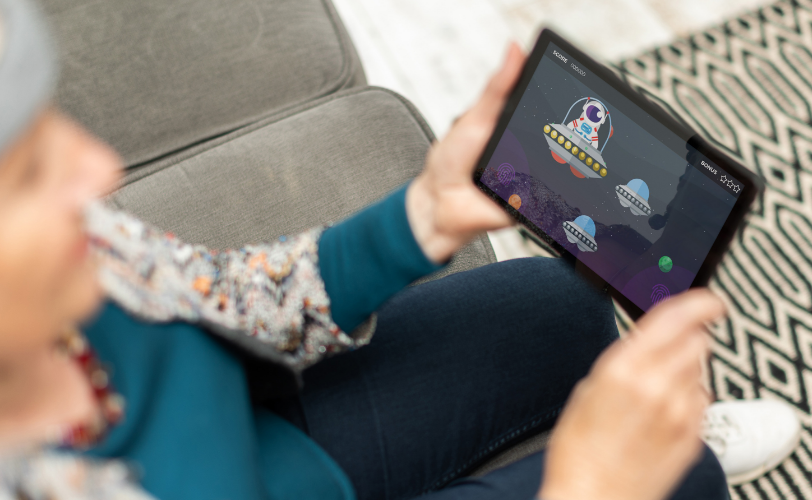
02 Jun Congratulations to portfolio company, Cumulus Neuroscience, on completing patient enrolment.
Cumulus Neuroscience Completes Patient Enrollment for Pivotal CNS-101 Early-stage Alzheimer’s Dementia Validation Trial.
Article taken from: https://cumulusneuro.com/articles/2023_05_31/
We are pleased to announce the completion of patient enrollment for our CNS-101 multi-site study. The real-world study evaluates the feasibility of using repeated sampling of validated digital measures at home in patients with early-stage Alzheimer’s disease (AD), compared with healthy controls, over the course of 12 months. The University of Cambridge and the University of Oxford are lead recruitment sites for the study.
With the goal of assessing people in familiar environments, rather than requiring transport to specialist research facilities for testing, CNS-101 uses the Cumulus dry-sensor EEG (electroencephalogram) headset, combined with the Cumulus digital platform, to measure patients’ cognitive performance and their brain waves during daily life. Study results will be compared with standard assessments normally used in AD clinical trials, including cognitive and blood biomarkers.
“The Cumulus Platform brings the clinical trial to the patient. To measure brain function, repeatedly over time, and in the comfort of a participant’s own home, is a major step forward for a new generation of clinical trials.”
Dr. James Rowe
Professor of Cognitive Neurology, University of Cambridge
“Clinical trials of Alzheimer’s disease and mild cognitive impairment can be challenging for many reasons. Reliance on specialist, centralized test centers increases participant burden and reduces sensitivity to natural day to day variation in symptoms,” said Dr. James Rowe, Professor of Cognitive Neurology at the University of Cambridge and Chief Investigator on CNS-101. “The Cumulus Platform brings the clinical trial to the patient. To measure brain function, repeatedly over time, and in the comfort of a participant’s own home, is a major step forward for a new generation of clinical trials.”
Patient enrollment for CNS studies can be difficult, and compliance limited; last year, across the entire UK, only 61 patients living with Alzheimer’s dementia were recruited into late-stage trials supported by the National Institute for Health and Care Research (NIHR) which coordinates clinical trials across the nation. The collective clinical study sites involved in the Cumulus Neuroscience CNS-101 study were able to fully enroll 59 patients in under 1 year.
“This engagement is a testament to the commitment of patients and caregivers to advance the understanding of Alzheimer’s disease, and the support they receive from our clinical partners.”
Brian Murphy, Ph.D.
CSO, Cumulus Neuroscience
“We’re encouraged to see high patient compliance rates with the at-home study protocol in our interim analysis,” said Brian Murphy, Founder and Chief Scientific Officer, Cumulus Neuroscience. “This engagement is a testament to the commitment of patients and caregivers to advance the understanding of Alzheimer’s disease, and the support they receive from our clinical partners.”
CNS-101 study participants use a tablet to log onto the Cumulus platform app, and perform a variety of tasks measuring working memory, episodic memory, executive function, decision making, language, and mood, while wearing the Cumulus headset which records EEG brain waves. Participants wear a headband at night to record brain waves while they sleep and monitor sleep quality over the course of the study. Data from the headsets and sleep headbands are recorded and uploaded onto the secure Cumulus Platform using anonymized codes, via the participant’s home Wi-Fi.
The details of this study are expected to be presented at upcoming medical conferences, with full results expected to be presented in early 2024.



